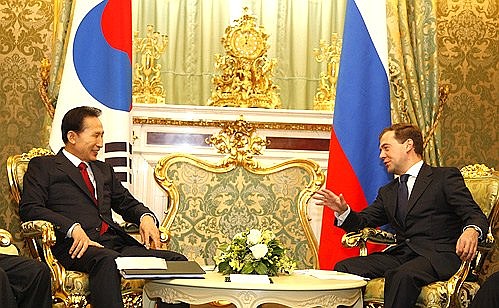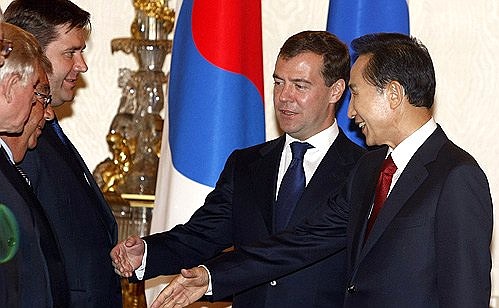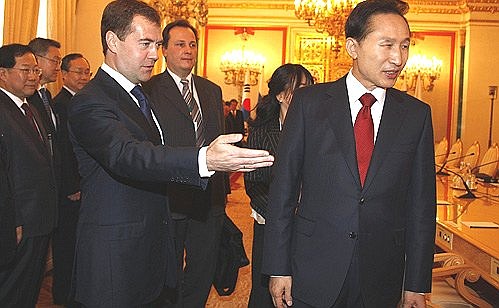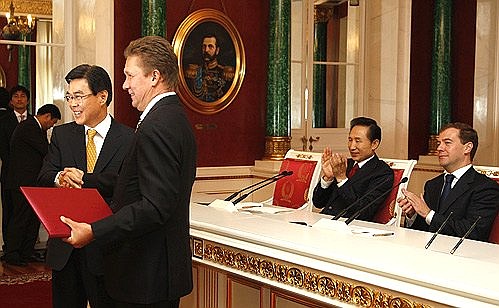Russia and the Republic of Korea consider it their common task to strengthen bilateral relations and develop a strategic partnership, Mr Medvedev said today following talks with President of the Republic of Korea Lee Myung-bak.
This approach has been set out in the Joint Declaration adopted following the talks, the President said.
This document sets out the measures for developing key areas of bilateral relations and the main principles for cooperation on the international stage.
The talks also resulted in an agreement to establish a new channel for consultations on foreign policy and security issues at deputy foreign minister level. The two countries have also agreed to activate contacts within the Russian-Korean Forum and to expand cooperation between cultural, scientific, youth, and sports organisations.
On economic matters, the Joint Declaration speaks of cooperation on carrying out projects to develop offshore hydrocarbon deposits in the Russian Federation, in particular on the West-Kamchatka shelf, and cooperation in the energy sector.
Russia welcomes South Korea’s intention to take part in tenders and auctions for subsoil resource use and the construction of petrochemical and gas-chemical installations, and liquefied natural gas stations in the Russian Far East. The document notes that the project to supply gas from Russia to South Korea is in both countries’ interests.
The two Presidents also gave their attention to nuclear energy and nuclear non-proliferation issues. They recognised that Russia’s initiative to establish an international uranium enrichment centre is useful and agreed to examine the possibility of bilateral cooperation in this area.
Mr Medvedev and Mr Lee expressed their concern at the recent situation in Georgia and their support for settlement of the situation through peaceful means and dialogue.
The talks focused particularly on the North Korean nuclear programme. Russia and South Korea agreed to bolster cooperation within the framework of the six-party talks.
Mr Medvedev expressed support for dialogue and cooperation between the two Koreas and said that he sees it as an important factor in strengthening peace and stability on the Korean Peninsula.
Russia and South Korea will also look for ways to cooperate on carrying out infrastructure and other projects as part of preparations for the APEC summit in Vladivostok in 2012 and the Sochi Winter Olympics in 2014.
As well as the Joint Declaration, a number of other bilateral documents were signed: a memorandum of understanding on organising natural gas supplies from Russia to South Korea; an intergovernmental agreement on simplifying visa issue procedures; a framework agreement between Vnesheconombank and the Export-Import Bank of Korea, and an agreement between the Russian Ministry of Natural Resources and Ecology and South Korea’s Ministry of Knowledge Economy on cooperation in geology and subsoil resource use.



